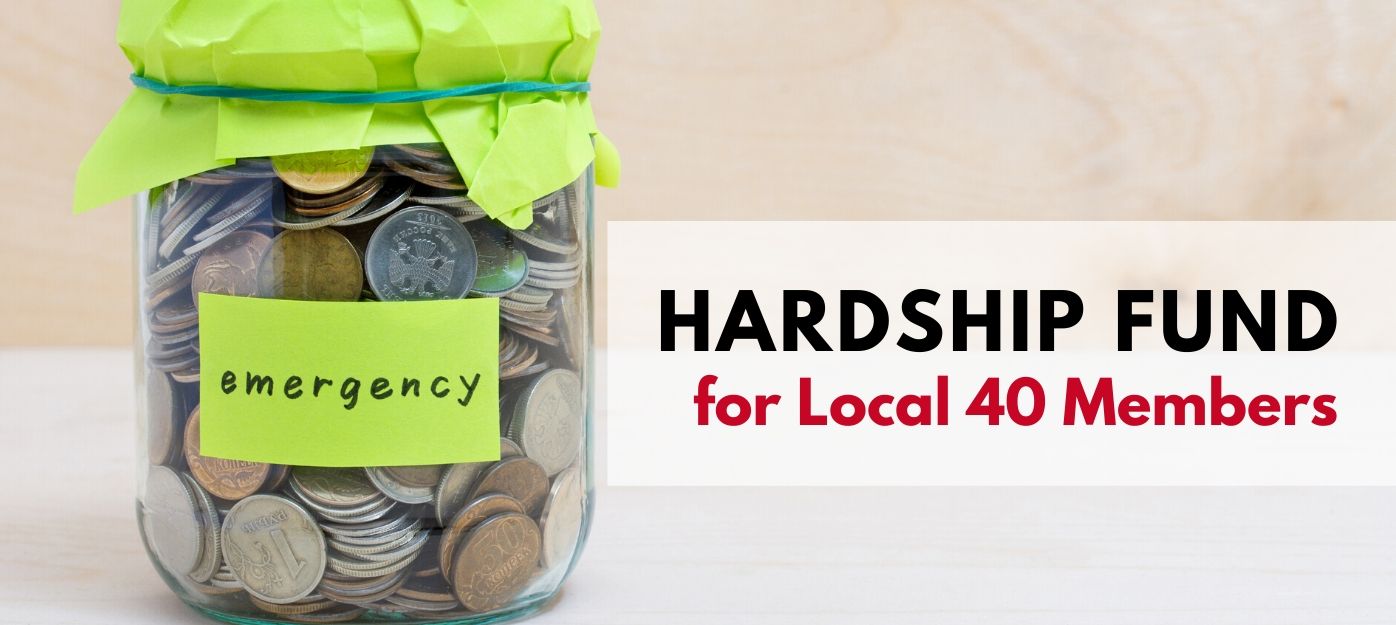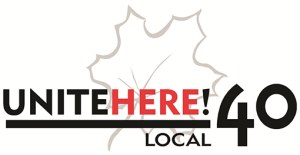Local 40 Hardship Fund now open for Applications

The Local 40 Hardship Fund is now taking applications!
This Fund was established by UNITE HERE Local 40 to assist members who have encountered financial and related difficulties as a result of the COVID-19 pandemic. Before applying, please ensure:
- you are a hospitality worker (you do not need to be a union member to be eligible).
- you have attempted to get assistance elsewhere, such as governmental assistance, BC Rent Subsidy, food banks, etc.
Your application will be reviewed by the Hardship Fund Committee. The Committee consists of rank and file members from five different Local 40 properties around BC. Limited funds are available and one-time grants will be provided. The hardship fund will aid members during emergency situations such as foreclosure/evictions, utilities being shut off, medical bills in collections, death/funeral expenses, food, diapers, or other critical circumstances. The money will be paid directly to the organization/person and a receipt will need to be issued to the Union.
To apply, download and fill out this form (Microsoft Word doc) and save and email it to updates@local40union.com. You can also apply online (note that you may need a Gmail account). All requests will be completely confidential.

